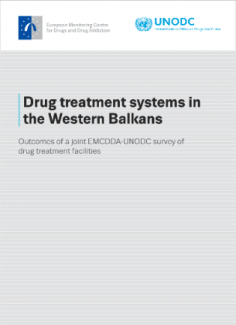Applying interventions designed to reduce and manage the symptoms of substance use disorders.
Treatment
Comparing Credentialing Requirements of Substance Abuse Treatment Staff by Funding Source
Studies have found that clinicians with higher education and/or attainment of national certification have a more favorable outlook regarding the adoption of evidence-based practices. However, staff hiring decisions may be based on a...
Podcast: Recovery-focused Care Planning
The Collaborate Care Planning Project (COCAPP) studies mental health risk, care planning and therapeutic relationships. This podcast interview with Alan Simpson and Sarah Carr explores the importance of assessing and managing risk, how to...

Sober Social Networks: The Role of Online Support Groups in Recovery from Alcohol Addiction
A recent study has analysed evidence for the value of online social networks in supporting recovery from alcohol addiction.

INTEREST Workshop
Known as the “African CROI” the INTEREST Conference brings together scientists involved in HIV

DSM-5 in Patients Seeking their First Treatment for Alcohol Use Disorder. Sex Differences in the Multicenter CohRTA Study
Abstract Objective: We aimed to analyze sex differences in the DSM-5 criteria among patients admitted to their first treatment of alcohol use disorder (AUD). Methods: Assessment of AUD was carried out using DSM-5 diagnostic criteria in a...
Mindful Body Awareness Training as Part of Treatment for Substance Use Disorder
Mindful Awareness in Body-oriented Therapy (MABT) is designed to teach interoceptive awareness and related skills for self-care and emotion regulation.

Effectiveness Bank Additions: Therapy Relationships that Work 4: Managing Perceptions of the Treatment
Clients’ perceptions of and reactions to treatment are the focus of this final of four bulletins recapping 16 reviews for the American Psychological Association. Emerging from psychotherapy research worldwide are practical and effective...
Combining Medically Assisted Treatment and Twelve-Step Programming: A Perspective and Review
ABSTRACT Background: People with severe substance use disorders require long-term rehabilitative care after the initial treatment. There is, however, a deficit in the availability of such care. This may be due both to inadequate medical...
Motivational Interviewing Skills Training
The training content will include key concepts of MI, developing competence in the pathway to change, developing MI skills and practice an integration plan.

The Results of the WHO-UNODC Substance Use Disorder Treatment Facility Survey in Serbia
In collaboration with the Ministry of Health of the Government of Serbia, UNODC supported the implementation of the UNODC/WHO substance use disorder treatment facility survey to map existing treatment capacity. The results of the survey...
